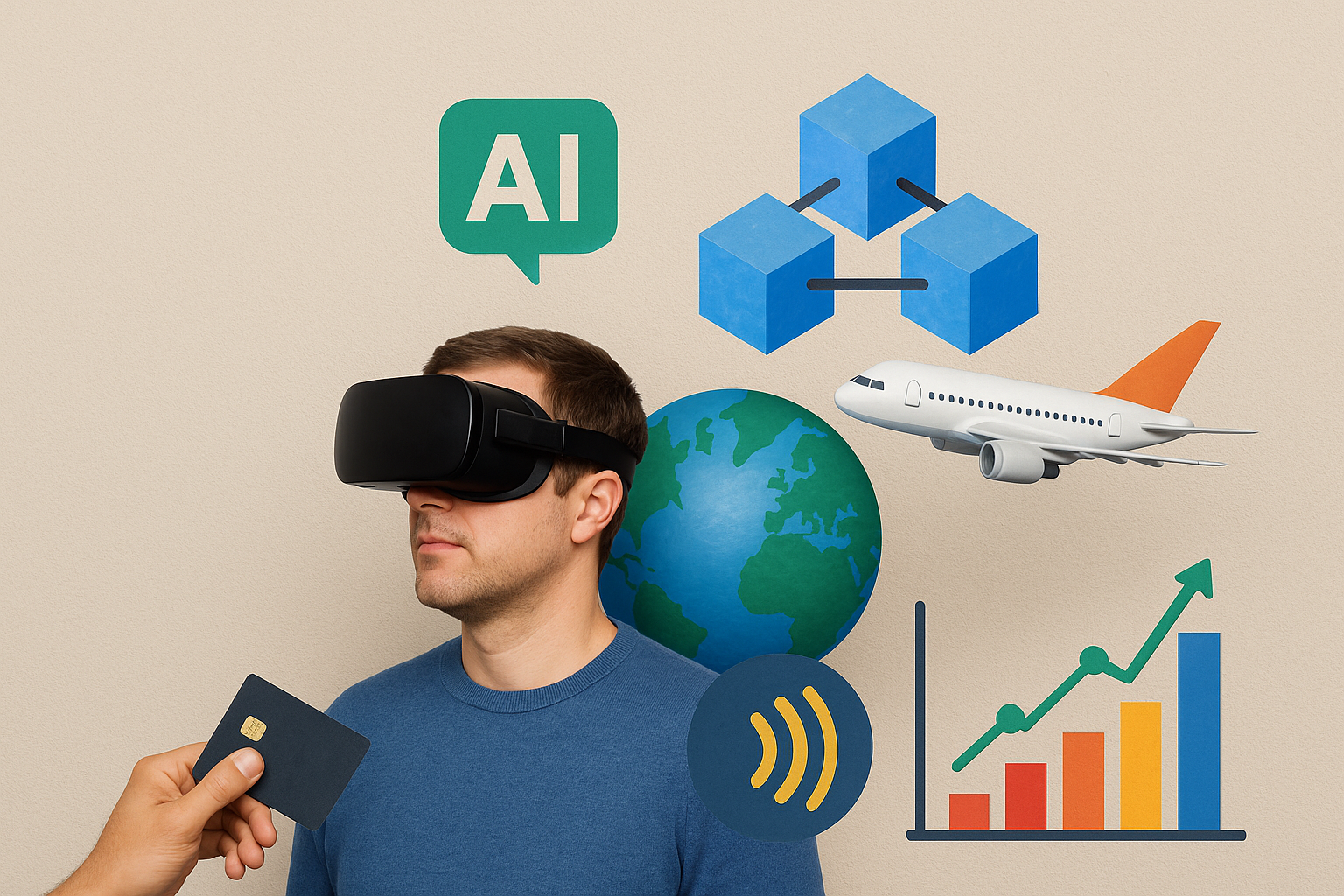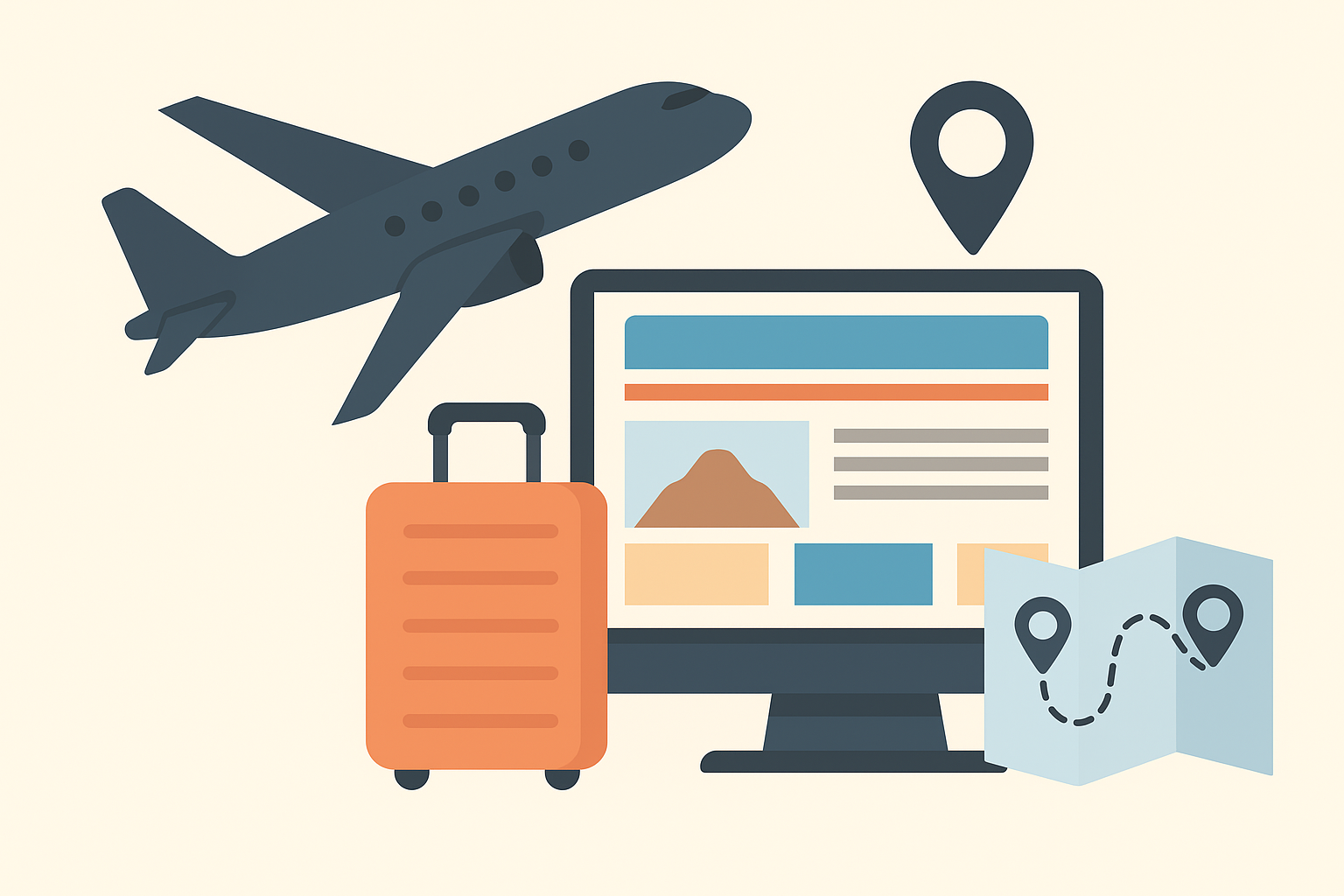The travel industry in 2025 is undergoing a rapid transformation, fueled by emerging technologies that impact every aspect of travel—from trip planning to personalized services and immersive customer experiences. In this article, we explore five breakthrough technologies that are redefining the way the travel industry operates and competes.
1. Artificial Intelligence (AI) Elevates the Travel Experience
By 2025, AI will no longer be just a data analytics tool—it will evolve into a virtual travel assistant, supporting travelers in planning, booking, and receiving support in real-time.
Examples of AI in the travel industry:
- 24/7 smart chatbots for customer service
- Personalized trip and hotel recommendations based on user behavior
- Predictive analysis to inform marketing and operational strategies
Travel companies leveraging AI can reduce costs, streamline operations, and deliver highly personalized experiences that keep customers coming back.
2. Virtual Reality (VR) & the Metaverse Reinvent Travel Marketing
Today’s travelers often research extensively before making decisions. In 2025, VR and the Metaverse will serve as powerful tools for businesses to offer “try-before-you-travel” experiences.
Applications of VR and the Metaverse in travel:
- 360° virtual tours of destinations and hotels
- Travel expos and immersive events hosted in virtual environments
- VR previews of airplane seating or luxury suites
These technologies redefine how travel brands connect with customers and inspire bookings by providing engaging, memorable virtual experiences.
3. Blockchain Technology Brings Transparency and Trust
Blockchain is poised to build greater transparency, security, and trust in the travel sector, especially in transactions involving bookings, payments, and reviews.
How blockchain is transforming travel:
- Decentralized booking platforms that reduce fees
- Smart contracts that automatically enforce agreements
- Tamper-proof customer reviews and loyalty systems
In the travel industry in 2025, businesses that implement blockchain effectively will gain a competitive edge by offering more secure and trustworthy services.
4. Contactless Technology: The New Standard in Post-Pandemic Travel
After the COVID-19 pandemic, contactless technology has become a must for health-conscious travelers. In 2025, it’s a baseline expectation for convenience and safety.
Popular contactless technologies in travel:
- Facial recognition check-in systems
- NFC-based mobile payments and keyless room access
- App-controlled hotel services (e.g., room service, climate control)
Contactless travel not only enhances efficiency but also reinforces a brand’s modern, forward-thinking image.
5. Big Data & Predictive Analytics Drive Smart Decision-Making
In the digital era, data is the new currency. The travel industry in 2025 relies heavily on Big Data and predictive analytics to adapt quickly to shifting traveler behaviors and market trends.
How data is shaping the future of tourism:
- Forecasting peak travel seasons and pricing strategies
- Deep segmentation of customer behavior for hyper-targeted marketing
- Optimizing travel routes for cost and time efficiency
Harnessing data gives businesses the insight they need to stay ahead of the curve and deliver exactly what modern travelers demand.
Conclusion
The travel industry in 2025 is entering a transformative era driven by cutting-edge technologies. Whether it’s AI, VR, blockchain, contactless services, or data analytics, companies that adapt and innovate will be better positioned to lead in this fast-paced landscape.
Those who embrace these changes proactively will not only survive but thrive in a more competitive and tech-forward travel ecosystem.



